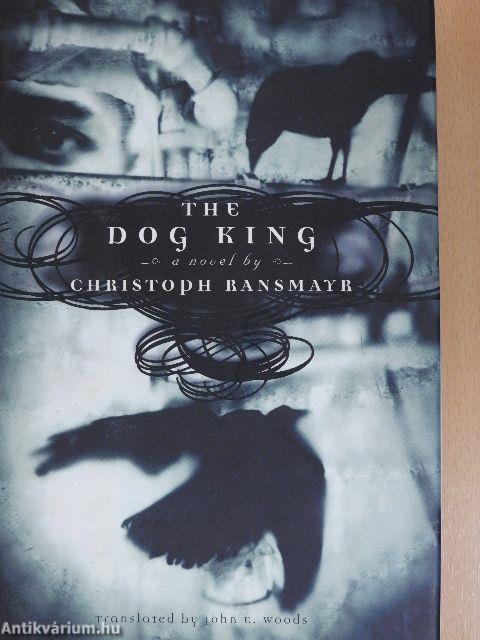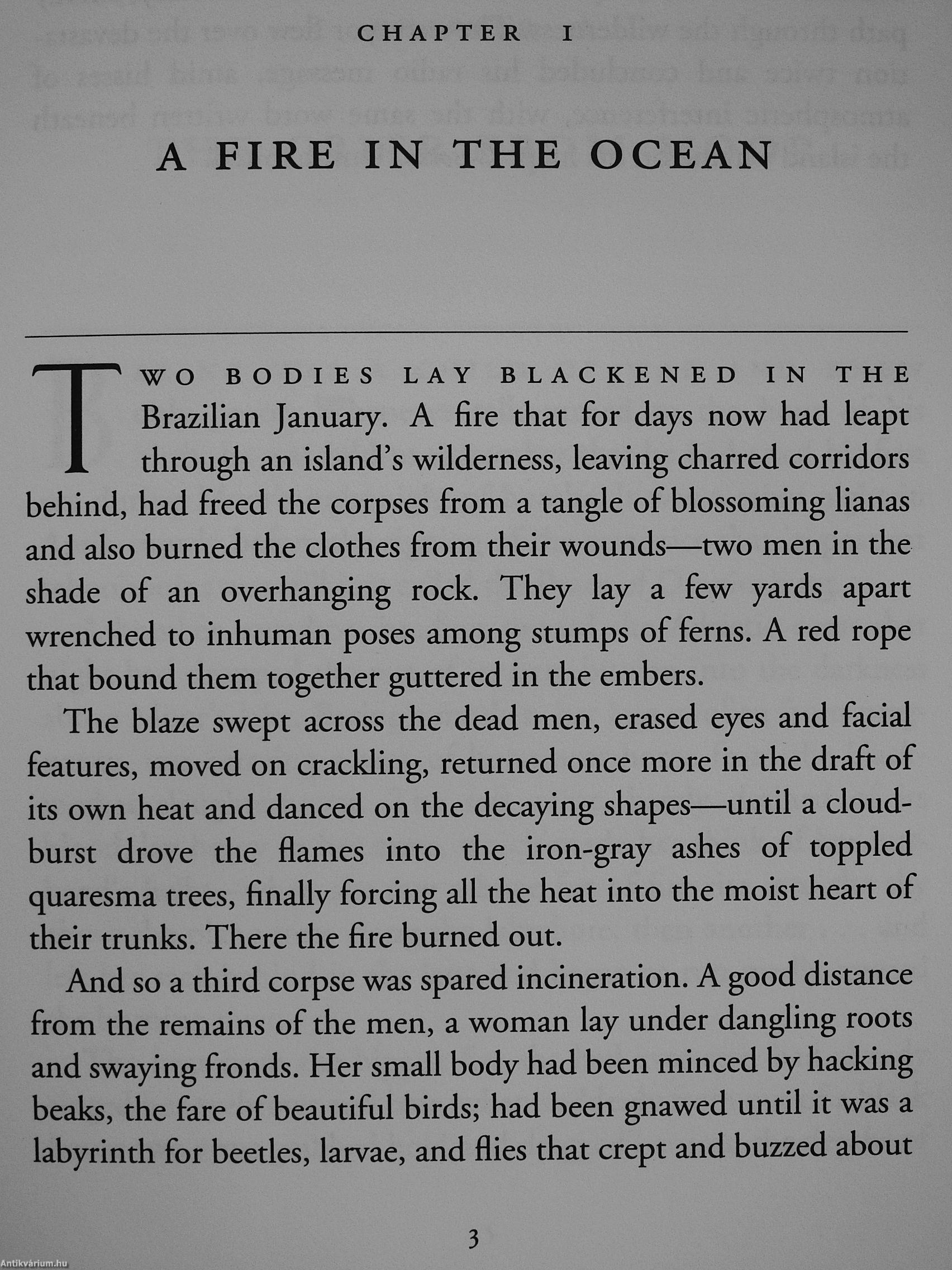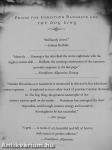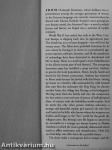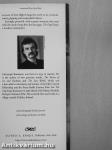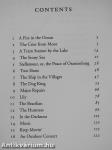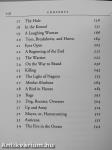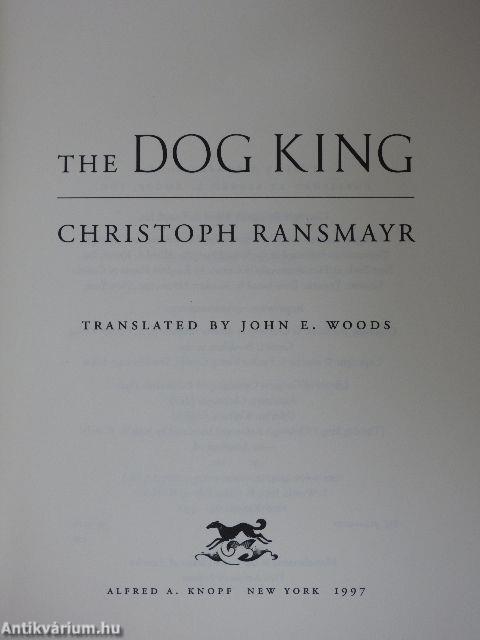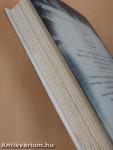1.067.309
kiadvánnyal nyújtjuk Magyarország legnagyobb antikvár könyv-kínálatát

VISSZA
A TETEJÉRE
JAVASLATOKÉszre-
vételek
The Dog King
| Kiadó: | Alfred A. Knopf |
|---|---|
| Kiadás helye: | New York |
| Kiadás éve: | |
| Kötés típusa: | Fűzött keménykötés |
| Oldalszám: | 355 oldal |
| Sorozatcím: | |
| Kötetszám: | |
| Nyelv: | Angol |
| Méret: | 22 cm x 15 cm |
| ISBN: | 0-679-45057-2 |
naponta értesítjük a beérkező friss
kiadványokról
naponta értesítjük a beérkező friss
kiadványokról
Előszó
TovábbFülszöveg
Praise for Christoph Ransmayr and TH E D O g KI N g
"Brilliantly clever." —Salman Rushdie
"Masterly . . . Ransmayr has described the worst nightmare with the highest artistic skill. . . Brilliant: the cunning construction of the narrative provides suspense to the last page." —Frankfurter Allgemeine Zeitung
"Neither Hiroshima nor Auschwitz is mentioned in this novel, but what these names represent is explored as in no other work of postwar German literature. In The Dog King, the greatest catastrophe of the century casts its spell on the reader . . . Ransmayr has attempted the sheer impossible, and through creative energy and narrative thoroughness he has succeeded." —Der Spiegel
"A gem A work of art, beautiful and full of horror, with scenes of perfect stillness." —Frankfurter Allgemeine
FROM Christoph Ransmayr, whose brilliant rise to preeminence among the younger generation of writers in the German language was recently crowned when he shared with Salman Rushdie Europe's... Tovább
Fülszöveg
Praise for Christoph Ransmayr and TH E D O g KI N g
"Brilliantly clever." —Salman Rushdie
"Masterly . . . Ransmayr has described the worst nightmare with the highest artistic skill. . . Brilliant: the cunning construction of the narrative provides suspense to the last page." —Frankfurter Allgemeine Zeitung
"Neither Hiroshima nor Auschwitz is mentioned in this novel, but what these names represent is explored as in no other work of postwar German literature. In The Dog King, the greatest catastrophe of the century casts its spell on the reader . . . Ransmayr has attempted the sheer impossible, and through creative energy and narrative thoroughness he has succeeded." —Der Spiegel
"A gem A work of art, beautiful and full of horror, with scenes of perfect stillness." —Frankfurter Allgemeine
FROM Christoph Ransmayr, whose brilliant rise to preeminence among the younger generation of writers in the German language was recently crowned when he shared with Salman Rushdie Europe's most prestigious new literary award, the Aristeion Prize—a novel in which fiction and history are forged into a universe of mythic intensity.
World War II has ended, but only in the West. Central Europe is slipping back into its agricultural past. The bomb has not yet been dropped—nor will it be for twenty years. The Allies have punished Germany for its war crimes by forcing it to revert to a preindustrial age: power stations, railways, factories, and all the machinery of technology have been destroyed or abandoned and left to decay. Moor is a small quarry town (Mauthausen in the all-too-recent past of real history). The occupying American army has installed a camp survivor, Ambras, to govern the local population. Brave, lonely, hated and feared by his former persecutors, Ambras has returned to Moor only because his Jewish wife died there. Setting up house in a derelict villa surrounded by wild hounds that earn him the nickname the Dog King, he chooses another loner, the village boy Bering, as his bodyguard. Moving away from his family and into the compound, the boy enters a new universe of power, of half-glimpsed ideas, of contact with the forbidden world outside. And he meets the only other person Ambras welcomes, a strange and beautifial orphan girl named Lily who lives and hunts in the hills, who knows where the weapons are hidden and forages in the "free" world for the goods the villagers crave. But Bering's new life begins to unravel as he succumbs to a strange eye disease known as Morbus Kitahara, in which the vision gradually darkens and which tends to afflict marksmen and sharpshooters. Only Lily can find help, can offer them all a possible future.
The three make a courageous bid to escape, and the
(continued on lyack flap)
(continued from front flnp)
account of their flight brings the novel to its extraordinarily gripping and suspenseful climax.
Searingly powerful, with a poetic intensity that stays with the reader long after the last page, The Dog King is a modern masterpiece.
Christoph Ransmayr was born in 1954 in Austria. He is the author of two previous novels, The Terrors of Ice and Darkness and The Last World, which was a best-seller in Germany and winner of the Elias Canetti Fellowship and the Franz Kafka Literary Prize. For The Dog King, Ransmayr in 1996 shared with Salman Rushdie Europe's Aristeion Prize. He currendy lives and works in a village outside Dublin, Ireland.
Jacket photograph hy Mary Javorek Jacket design by Barbara de Wilde
alfred a. t, Publisher, New York
http: //www.randomhouse.com/ 5/97 Vissza
Témakörök
- Idegennyelv > Idegennyelvű könyvek > Angol > Szépirodalom > Regény, novella, elbeszélés
- Idegennyelv > Idegennyelvű könyvek > Angol > Szépirodalom > Szórakoztató irodalom > Sci-fi
- Szépirodalom > Regény, novella, elbeszélés > Az író származása szerint > Európa > Ausztria
- Szépirodalom > Regény, novella, elbeszélés > Tartalom szerint > Kor- és társadalomrajz
- Szépirodalom > Szórakoztató irodalom > Sci-fi > Idegennyelvű
- Szépirodalom > Szórakoztató irodalom > Sci-fi > Utópisztikus



